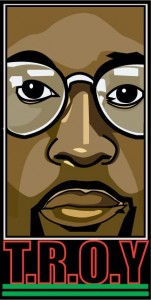The Police Beat: Las Vegas Metro Edition
From Rikki Cheese and Spencer Lubitz at ABC 13 Action News:
Civil rights advocates want those treated unfairly by police to speak out
Las Vegas, NV (KTNV) — A group of civil rights advocates want to hear from people who feel they’ve been mistreated by Metro police.
People have been shot, beaten and tasered by Metro officers across the department’s jurisdiction. Civil rights groups hope airing those stories in public forums could help change police behavior.
Mitchell Crooks was beaten by a cop for videotaping a burglary investigation across the street from his home near Desert Inn and Maryland Parkway. Erik Scott was shot and killed at a Costco in Summerlin. Both Caucasian men. Civil rights advocates say they’re not Metro’s usual suspects in officer-involved shootings, or accusations of excessive use of force.
I can’t say whether there’s a conscious racial bias, but certainly the evidence reveals a disproportionate impact on minority populations, and that’s just brought out by the data,Staci Pratt with the ACLU said.Pratt says 2010 census data shows the largest proportion of officer-involved shooting occur in African-American and Hispanic neighborhoods in Clark County.
Advocacy groups also want to hear from people who feel they’ve been mistreated by law enforcement in all ways, and who feel their complaints have not been heard.
Pratt applauds Metro’s recent changes in their use of force policy and for accepting recommendations from the ACLU and NAACP but says officers need to be more sensitive to the people they police.
That may not be a conscious thing on Metro’s part,Pratt said.But it certainly is an issue that needs to be raised and addressed.
It is good that they are doing this. Legal reforms and use of force
policies don’t do a damn thing, but here and elsewhere they may be reflections of, and concessions to, something much more poewrful. The only thing that is ever going to restrain police abuse is a culture of popular resistance, public exposure and social accountability for abusive cops, and hard driving community activism.
Support your neighborhood CopWatch.
